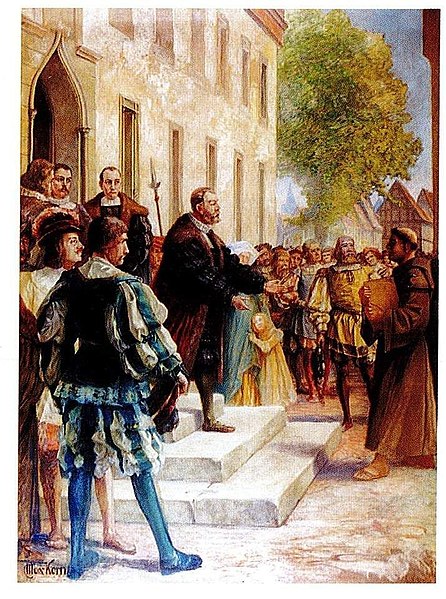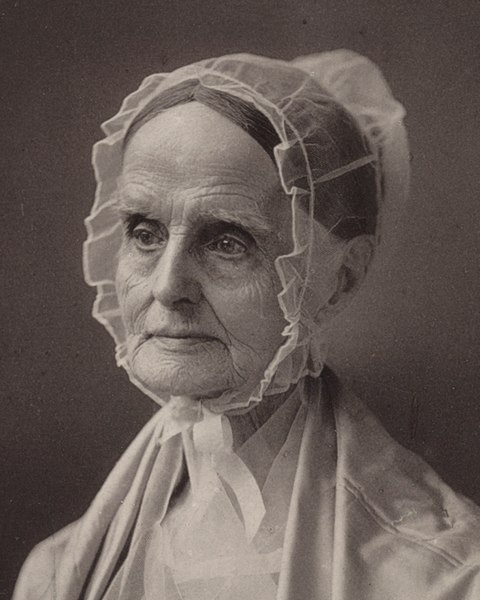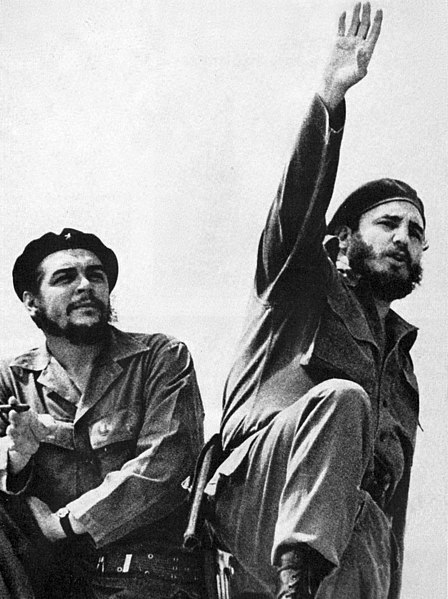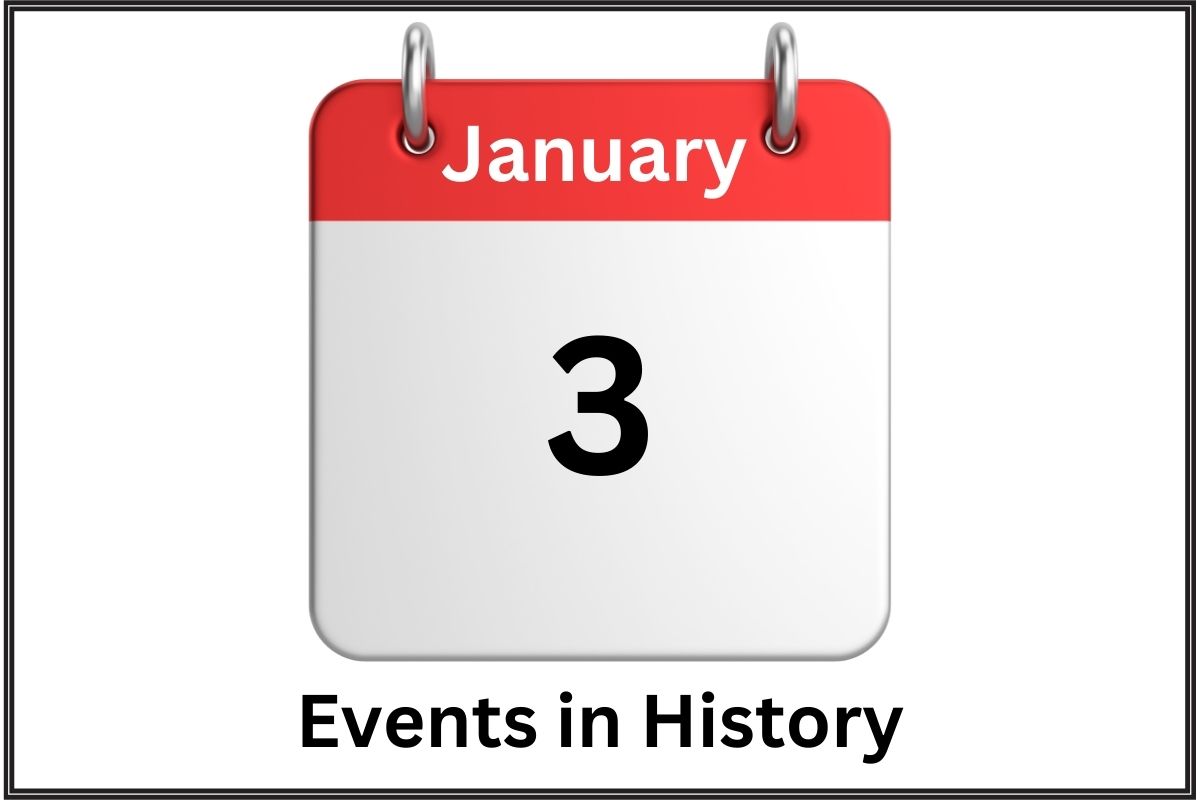The passage of time has witnessed countless pivotal moments that have shaped the course of human history, each day carrying its own set of significant events.
January 3rd stands out as a day rich in historical occurrences, ranging from monumental shifts in political landscapes to groundbreaking advancements in science and technology. This article delves into a curated selection of such events, highlighting their impact and legacy.
From the excommunication of Martin Luther, sparking the Protestant Reformation, to the technological triumph of NASA’s Mars Exploration Rover Spirit landing on Mars, each event encapsulates a unique story of human endeavor, resilience, and innovation.
Through exploring these milestones, we gain insight into the complex tapestry of human history and the remarkable achievements that have contributed to our current understanding of the world.
January 3rd Events in History
69: The Roman legions on the Rhine refuse to declare their allegiance to Galba, instead proclaiming their legate, Aulus Vitellius, as emperor
This event marks a significant moment in the Roman Empire’s history, known as the Year of the Four Emperors. The refusal of the legions to support Galba and their proclamation of Vitellius as emperor was a pivotal move in the civil wars that plagued Rome in 69 AD.
The legions’ allegiance to Vitellius highlighted the political instability and the power struggle within the empire.
1521: Pope Leo X excommunicated Martin Luther
The excommunication of Martin Luther followed his refusal to recant his writings, which criticized the Roman Catholic Church’s practices, notably the sale of indulgences.
Also Read: January 2 – On this Day in History
This act by Pope Leo X was a crucial moment in the Protestant Reformation, leading to the establishment of Protestant churches separate from Roman Catholic authority.

1543: Spanish explorer Juan Rodríguez Cabrillo died
Cabrillo was a navigator and explorer known for his exploration of the Pacific Coast of present-day California. He is often credited with the European discovery of the California coast, offering new routes for exploration and trade in the New World.
His expeditions laid the groundwork for further European exploration and eventual colonization of the region.
1777: The Battle of Princeton occurred during the American Revolution
This battle was a significant victory for General George Washington and his Continental Army. Coming on the heels of the victory at Trenton, the Battle of Princeton boosted American morale and demonstrated the effectiveness of the Continental forces against the British.
It was a turning point in the Revolutionary War, helping to secure French support for the American cause.
1793: American reformer Lucretia Mott was born
Lucretia Mott was a prominent Quaker preacher, abolitionist, women’s rights activist, and social reformer.
Also Read: January 4th Events in History
She played a key role in the anti-slavery movement and was instrumental in organizing the Seneca Falls Convention in 1848, which was the first women’s rights convention in the United States. Her efforts were crucial in the fight for women’s suffrage and abolition.

1883: Clement Attlee was born
Clement Attlee was a British politician who served as the Prime Minister of the United Kingdom from 1945 to 1951.
Leading the Labour Party, his government initiated significant social reforms and welfare state measures, including the creation of the National Health Service (NHS).
His administration oversaw the recovery of Britain after World War II and the beginning of the decolonization process.
1892: J.R.R. Tolkien was born
John Ronald Reuel Tolkien was an English writer, poet, philologist, and academic, best known for his high fantasy works “The Hobbit” and “The Lord of the Rings.”
His imaginative storytelling and the elaborate fantasy world he created have had a profound influence on the fantasy genre. Tolkien’s works continue to inspire and entertain readers worldwide.
1929: Sergio Leone was born
talian film director, producer, and screenwriter Sergio Leone is renowned for his work in the Spaghetti Western genre, particularly the “Dollars Trilogy” starring Clint Eastwood.
Leone’s innovative storytelling, distinctive style, and use of music, especially the scores composed by Ennio Morricone, redefined the western genre and had a lasting impact on filmmaking.
1938: Franklin D. Roosevelt established the March of Dimes
Originally called the National Foundation for Infantile Paralysis, the March of Dimes was established by President Franklin D. Roosevelt, himself a polio survivor, to combat polio.
The organization funded the development of vaccines and played a crucial role in decreasing the incidence of polio in the United States and eventually worldwide.
1939: Canadian professional ice hockey player Bobby Hull was born
Known as the “Golden Jet” for his speed on the ice and his blond hair, Bobby Hull is considered one of the greatest ice hockey players of all time.
He played for the Chicago Blackhawks and Winnipeg Jets, setting numerous scoring records and winning the Stanley Cup in 1961 with the Blackhawks. Hull’s playing style and contributions to the game have left a lasting legacy in professional hockey.
1944: Major Greg “Pappy” Boyington was shot down during World War II
Greg “Pappy” Boyington was a highly decorated American Marine Corps fighter ace during World War II, leading the famous Black Sheep Squadron.
On January 3, 1944, he was shot down over the Pacific by Japanese forces and subsequently captured, becoming a prisoner of war. Boyington’s valor and leadership were celebrated, and he was later awarded the Medal of Honor and the Navy Cross.
1959: Alaska was officially admitted as the 49th state of the United States
The largest state in the United States by area, Alaska’s admission into the Union marked a significant expansion of U.S. territory.
Rich in natural resources, its inclusion has had a profound impact on the country’s energy sector, environmental policies, and military strategy, given its strategic location close to Russia.
1962: Pope John XXIII excommunicated Fidel Castro
The excommunication of Fidel Castro, the leader of Cuba’s Communist government, by Pope John XXIII reflected the tension between the Catholic Church and communist ideology.
This act underscored the broader conflict between communism and religion during the Cold War, particularly in Latin America where the Catholic Church held significant influence.

1969: Michael Schumacher was born
Michael Schumacher, a German racing driver, is widely regarded as one of the greatest Formula 1 drivers in history. He holds numerous records in the sport, including seven World Drivers’ Championship titles and 91 Grand Prix victories.
Schumacher’s career, marked by his competitive spirit and remarkable talent, has left an indelible mark on Formula 1.
1975: Danica McKellar was born
An American actress, mathematics writer, and education advocate, Danica McKellar is best known for her role as Winnie Cooper in the television series “The Wonder Years.”
Beyond acting, McKellar has authored several mathematics-related books aimed at encouraging young people, especially girls, to have confidence and success in mathematics.
1977: Apple was incorporated by Steve Jobs and Steve Wozniak
The incorporation of Apple marked the beginning of what would become one of the most influential tech companies in the world.
Founded by Steve Jobs, Steve Wozniak, and Ronald Wayne, Apple revolutionized several industries with its innovative products, including the personal computer, smartphone, and digital music. Its impact on technology, business, and culture has been profound and wide-reaching.
1981: Eli Manning was born
Eli Manning, an American football quarterback, played his entire professional career for the New York Giants of the NFL. Known for his calm demeanor and clutch performances, Manning led the Giants to two Super Bowl victories over the New England Patriots, earning MVP honors in both games. His legacy includes numerous franchise records and a reputation for philanthropy off the field.
1990: Manuel Noriega surrendered to the United States
The surrender of Manuel Noriega, the military dictator of Panama, to U.S. forces marked the end of a contentious period in U.S.-Panama relations.
His surrender followed the U.S. invasion of Panama, operationally named “Operation Just Cause,” which was justified by the U.S. on the grounds of protecting the Panama Canal, combating drug trafficking, and defending human rights.
Noriega was later tried and convicted on multiple counts of drug trafficking, racketeering, and money laundering.

2001: Hillary Clinton was sworn in as a U.S. senator from New York
Hillary Clinton’s swearing-in as a U.S. senator marked a significant transition from her role as First Lady to that of an elected official, making her the first First Lady to hold national office.
Her tenure in the Senate was characterized by her advocacy for healthcare reform, support for military intervention in Afghanistan and Iraq, and efforts to aid recovery following the September 11 attacks.
2004: NASA’s Mars Exploration Rover Spirit landed on Mars
The landing of the Mars Exploration Rover Spirit marked a significant milestone in the exploration of Mars. Part of NASA’s Mars Exploration Rover program, Spirit, and its twin, Opportunity, were tasked with searching for clues to past water activity on Mars.
Spirit’s discoveries, including evidence of ancient water flows, have contributed greatly to our understanding of the Martian environment and its potential for supporting life.
